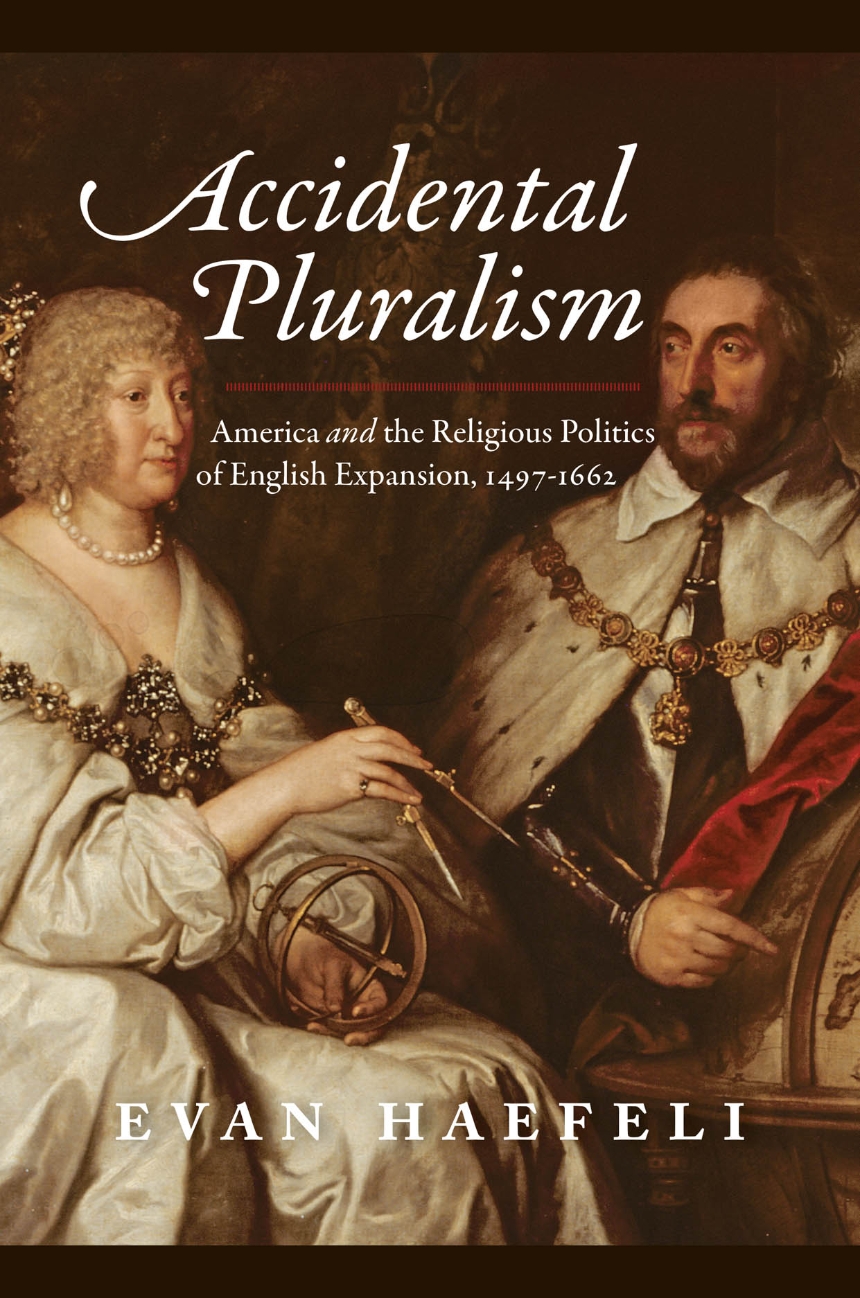Accidental Pluralism
America and the Religious Politics of English Expansion, 1497-1662
9780226742618
9780226742755
Accidental Pluralism
America and the Religious Politics of English Expansion, 1497-1662
The United States has long been defined by its religious diversity and recurrent public debates over the religious and political values that define it. In Accidental Pluralism, Evan Haefeli argues that America did not begin as a religiously diverse and tolerant society. It became so only because England’s religious unity collapsed just as America was being colonized. By tying the emergence of American religious toleration to global events, Haefeli creates a true transnationalist history that links developing American realities to political and social conflicts and resolutions in Europe, showing how the relationships among states, churches, and publics were contested from the beginning of the colonial era and produced a society that no one had anticipated. Accidental Pluralism is an ambitious and comprehensive new account of the origins of American religious life that compels us to refine our narratives about what came to be seen as American values and their distinct relationship to religion and politics.
384 pages | 11 halftones | 6 x 9 | © 2021
American Beginnings, 1500-1900
History: American History, British and Irish History
Religion: American Religions, Comparative Studies and History of Religion
Reviews
Table of Contents
Introduction
Part 1: Tudor-Stuart Foundations, 1497–ca. 1607
1. Colonization: Religion, Expansion, Guiana, and Slavery
2. Conformity: Religious Change, Obedience, and Virginia
3. Jurisdiction: Ireland, Scotland, and the Limits of Authority
4. Dissent: English Papists, Puritans, and Others
Part 2: Jacobean Balance, ca. 1607–1625
5. Balance: Virginia, Bermuda, Newfoundland, ca. 1607–1618
6. Polarization: Plymouth, Avalon, Nova Scotia, New England, 1618–1625
Part 3: Caroline Transformation, 1625–1638
7. Favorites: Saint Christopher, Barbados, Maryland, 1624–1632
8. Puritans: New England, Providence Island, the Leewards, 1629–1638
9. Catholics: Montserrat, New Albion, Maryland, 1632–1638
Part 4: Civil Wars, 1638–1649
10. Fragmentation: Rhode Island, Madras, Trinidad, 1638–1643
11. Toleration: New England, Bermuda, Madagascar, 1643–1646
12. Revolution: New England, the Bahamas, Barbados, the Leewards, 1647–1649
Part 5: Commonwealth, 1649–1660
13. Republic: New England, the Caribbean, Acadia, 1649–1654
14. Empire: Surinam, Barbados, Jamaica, Dunkirk, 1654–1660
Conclusion
Part 1: Tudor-Stuart Foundations, 1497–ca. 1607
1. Colonization: Religion, Expansion, Guiana, and Slavery
2. Conformity: Religious Change, Obedience, and Virginia
3. Jurisdiction: Ireland, Scotland, and the Limits of Authority
4. Dissent: English Papists, Puritans, and Others
Part 2: Jacobean Balance, ca. 1607–1625
5. Balance: Virginia, Bermuda, Newfoundland, ca. 1607–1618
6. Polarization: Plymouth, Avalon, Nova Scotia, New England, 1618–1625
Part 3: Caroline Transformation, 1625–1638
7. Favorites: Saint Christopher, Barbados, Maryland, 1624–1632
8. Puritans: New England, Providence Island, the Leewards, 1629–1638
9. Catholics: Montserrat, New Albion, Maryland, 1632–1638
Part 4: Civil Wars, 1638–1649
10. Fragmentation: Rhode Island, Madras, Trinidad, 1638–1643
11. Toleration: New England, Bermuda, Madagascar, 1643–1646
12. Revolution: New England, the Bahamas, Barbados, the Leewards, 1647–1649
Part 5: Commonwealth, 1649–1660
13. Republic: New England, the Caribbean, Acadia, 1649–1654
14. Empire: Surinam, Barbados, Jamaica, Dunkirk, 1654–1660
Conclusion
Acknowledgments
Abbreviations
Note on Transcriptions, Dates, Sources, and Terminology
Notes
Index
Abbreviations
Note on Transcriptions, Dates, Sources, and Terminology
Notes
Index
